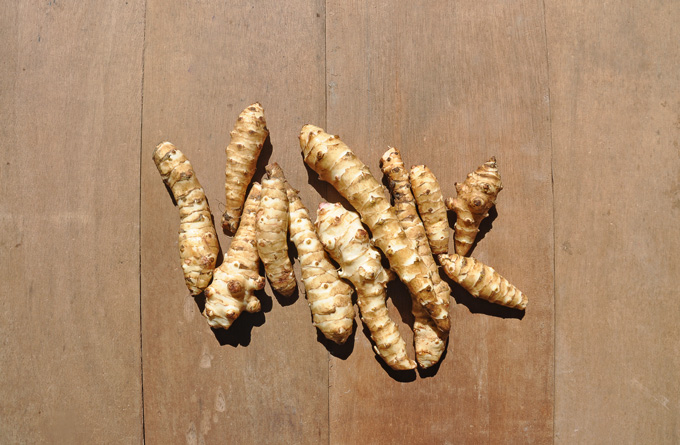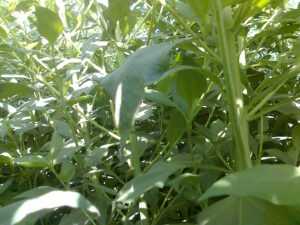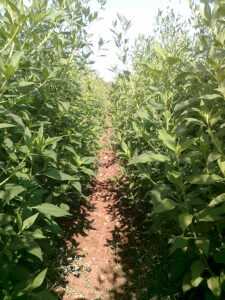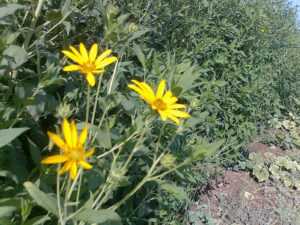This weekend we billed your cards for November purchases. The billing is three-part: one bill for vegetables, fruits and dates which you purchased over the past month (Of course, if you only received vegetables, you will only be billed for vegetables. Not fruit or dates…) The second part is the bill for delivery, which includes VAT, and the third is for extra non-Chubeza products you purchased through our Internet order system.
We would like to remind you that you are now able to view your billing history in our Internet-based order system. It’s easy. Simply click the tab “דוח הזמנות ותשלומים” where the history of your payments and purchases is clearly displayed.
Please make sure the bill is correct, or let us know of any necessary revisions. At the bottom of the bill, the words סה”כ לתשלום: 0 (total due: 0) should appear. If there is any number other than zero, this means we were unable to bill your card and would appreciate your contacting us. We always have our hands full, and we depend on you to inform us. Our thanks!
_______________________________________
Since the establishment of Chubeza over a decade ago, we have not raised the price of deliveries to collection points. Yet the time has come, so from December, the delivery price to collection points is 10 shekels.
______________________________________________
Important news!
A change in deadline for updating your order:
After many years of working late nights on the day before deliveries, we have decided to return some sanity into our lives (or at least attempt to do so…). In order to allow us to prepare for delivery day in a relaxed fashion, we have decided to bring up the deadline for changes and updates in your deliveries.
From now on, you can make changes in your next order (add products, comments, cancellations, etc.) by 8:00 AM on the day before delivery! Requests that arrive later than that simply cannot be filled till the following delivery!
Thank you so much for your cooperation!
_____________________________________________
At last, the Samar Dates have arrived!!!!
Last week, Samar dates made their long journey to us from the southern Arava to the Ayalon Valley. On Thursday we received the Barhi (note from the translator: world’s most amazingly delicious date) and Dekel Nur, and promptly added them to the order options in our order system. Their price remains as it was last year, 20 shekels per kg. You are more than welcome to add these delicacies to your vegetable orders.
_____________________________________
Something from the Sunflowers
Over the summer, our field was scattered with tall, tangled sunflower plants. Several lines seeded at the beginning of spring and over the six months of spring, summer and autumn stood there decorating the field, first in green, then in hues of yellow. Beautiful as they are, they weren’t planted for aesthetics. Under the earth, in their roots, a happy surprise awaited, which appeared in your boxes over the past few weeks: the incredible Jerusalem artichoke.
It’s not really an artichoke, and certainly is not a “Yerushalmi,” but it is a wonderfully delicious treat that’s very easy to prepare. This week we proudly dedicate our newsletter and recipes to the New Vegetable in the Box, as captured in this great photo from Gal’s blog, Ptitim:
The Jerusalem artichoke is actually a type of sunflower which develops an edible bulb. The origins of this delectable bulb are in North American east coast from Georgia to Nova Scotia, where it has been both growing wild and cultivated in Native American vegetable gardens for years on end. Here the Jerusalem artichoke fully enjoys the American sunshine and rich, fertile earth, yielding farmers and gleaners its rich roots that abound with energy and sweetness.
The Europeans who came to visit and stayed to conquer tasted it and fell in love. The first to describe the bulb was French explorer Samuel de Champlain, who noticed it in a Cape Cod vegetable garden in 1602. He sent some to France, from which it meandered to England, Germany and Italy. The Italians termed it girasole, Italian for “sunflower.” Somehow the pronunciation was distorted to “Jerusalem,” and it stuck. The “artichoke” part came from the fact that it somewhat resembles the artichoke in taste. In America, it’s commonly known as a “sunchoke.”
Like any sunflower, it adores the sun and grows during the summer. For Chubeza, this is the second summer we’ve watched its growth. I say “watch,” because from the moment we placed the bulbs in the earth until we plunged the pitchfork in to remove them, we really did not have much to do (aside from occasional weeding and watering). We were rather amazed at the beautiful strength of its growth, at its ability to joyfully grow wild and dare the weeds to even think of coming close. In our field, the Jerusalem artichoke is free from pests (moles and rats are their nemesis), which is why we could just step aside and simply watch it grow. Patiently.
Here it is going wild, blooming, growing: The Jerusalem artichoke in Chubeza:
And yes, we required much patience. The plant took its sweet time for at least seven months, growing, wilting and clandestinely swelling up its unique roots. By the end of October when the foliage had dried up, we inserted the pitchfork to examine the situation, only to discover that we needed more patience. So we waited a bit longer, regularly sampling some to gobble up for lunch. Now, a month later, we are finally beginning to pull out all these yummy, distinctive bulbs.
Though it grows underground like the potato (even if it is more stubborn and recalcitrant than the latter) and has a similar caloric value, the Jerusalem artichoke is low in carbs. Instead of starch, it contains inulin, a fruit sucrose carbohydrate, soluble in water (which is how it stores its energy in the root bulb). Inulin aids in lowering blood sugar levels, making it recommended for diabetics (contrary to potatoes!). Inulin feeds the friendly microbes in the intestines and reduces the threat of a variety of diseases. On the other hand, it may cause gas, so if you’re first beginning to eat Jerusalem artichokes, start slowly to get the body accustomed. These bulbs are an excellent source of thiamine, iron, niacin, Vitamin B3 and potassium. Chinese medicine classifies the Jerusalem artichoke as a warming vegetable which strengthens the digestive system. A great winter vegetable!
If you wish, you may peel it. If peel it or if you don’t like peeling the knobby bulbs, here are some tips from Phylis Glazer:
The Jerusalem artichoke turns black quickly after being peeled, so it is recommended to place it in a bowl filled with water and two tablespoons of lemon juice, or simply drop into milk and cook away. Soaking in water causes the vegetable to lose the B vitamins, which are soluble. Thus it’s best to peel them and give the artichokes a quick soak, or soak from time to time in a water and lemon juice solution while peeling. You can also scrub them well and cook them unpeeled (a young Jerusalem artichoke can be eaten with peeling) and then use the soaking water for soup or other type of dish. If the bumps make it hard to peel, steam the roots for several minutes to remove the peeling with ease.
The most well-known recipe is a Jerusalem artichoke soup, but there are many other ways to enjoy it, from a raw salad to simply oven-roasting. In this week’s recipe corner, I have a host of recipes for our new vegetable. Many thanks to our contributors.
My clever sister taught me that when you kindle the Chanukah lights and say the prayer, you can add your own personal requests for a modern-day miracle. A miracle does not have to be something surprising and unexpected—it can be the wonder of goodness and abundance that can be a natural phenomenon. Let’s dedicate one of the upcoming Chanukah days to request some good winter showers, this season, sometime very soon.
Wishing you a Chag Sameach and a good week,
Alon, Bat Ami, Maya and the Chubeza team
WHAT’S IN THIS WEEK’S BOXES?
Monday: Coriander, sweet potatoes, beets/fennel/ daikon, tomatoes, Swiss chard/spinach, lettuce, cucumbers, arugula/kale, carrots. Small boxes only: Jerusalem artichoke and cabbage
In the large box, in addition: Lubia/green beans/ pumpkin, cauliflower/ broccoli, leeks/chives, parsley, celery
Wednesday: spinach/Swiss chard, lettuce, cucumbers, cabbage/cauliflower/broccoli, cilantro, sweet potatoes, carrots, arugula/tatsoi, Jerusalem artichoke – small boxes only, leek/chive – small boxes only
In the large box, in addition: parsley, fennel, celery, black eyes peas/green beans/pumpkin, radishes
___________________________________
JERUSALEM ARTICHOKE RECIPE CORNER:
Tal sent me this vegan recipe of Chef Yossi Shitrit from the “Kitchen Market” Restaurant:
JERUSALEM ARTICHOKE SOUP
3 cups Jerusalem artichokes (around 1 – 1 ½ kilo), peeled and sliced into cubes
½ cup sliced leeks (only the white part of one medium-sized leek)
4 whole garlic cloves
1 spring of lemon thyme (or regular)
Water
2 T chopped lemongrass (or grated rind of half a lemon)
1 container of coconut milk
2 T. chopped ginger
3 T olive oil
1 T coconut oil
Salt and freshly-ground black pepper
Preparation:
- In a wide pot, melt the coconut oil. Add the leeks and steam lightly while stirring 2-3 minutes, till leeks are transparent.
- Add the garlic cloves, the lemongrass and ginger. Sauté for around two minutes. Add the Jerusalem artichoke and enough water to cover.
- Bring to a boil. Lower heat to a light boil and cook for around 30 minutes, or till artichokes are completely soft.
- Add the coconut milk and season with salt and pepper. Blend soup well together with liquid in food processor or hand-blender till smooth. If desired, press soup through fine-meshed sieve till completely smooth. Return to pot until served.




